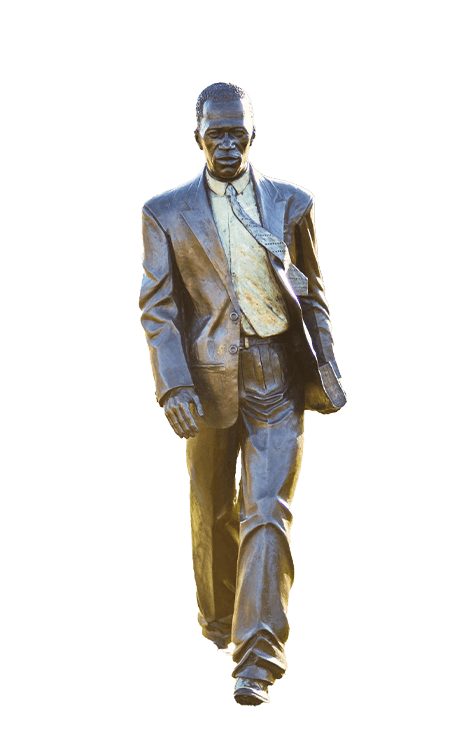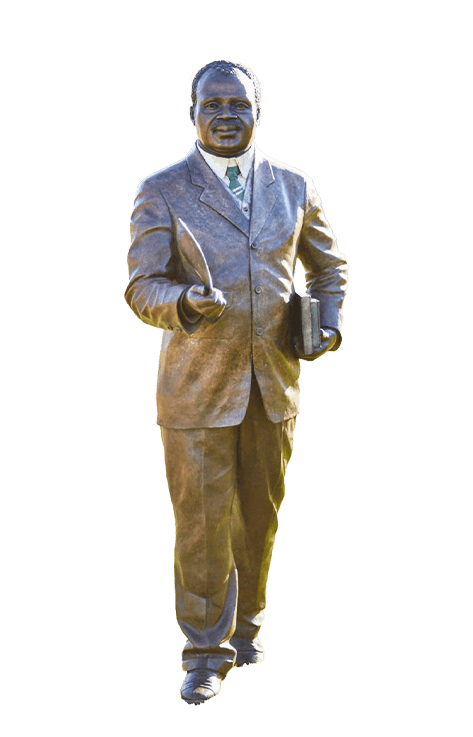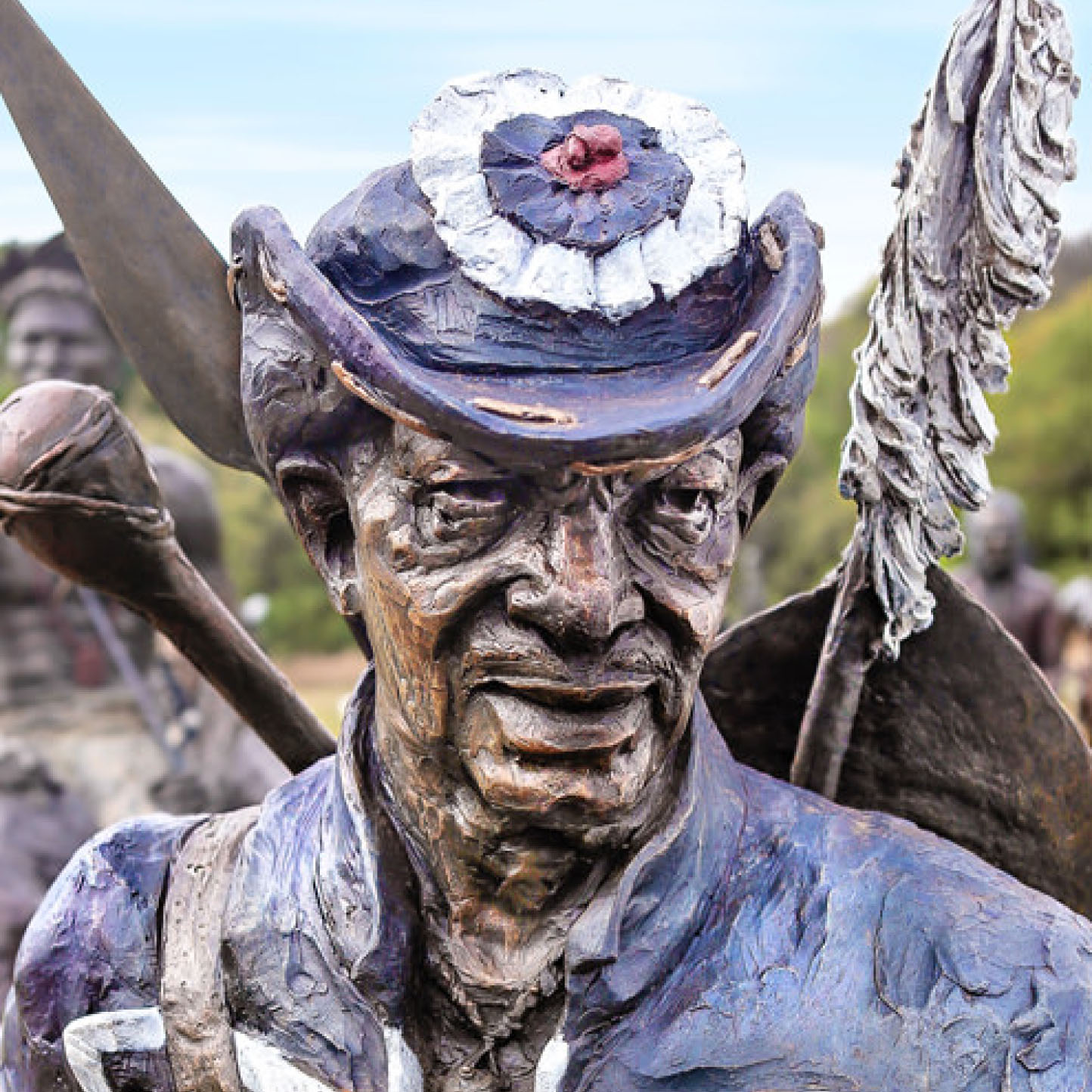
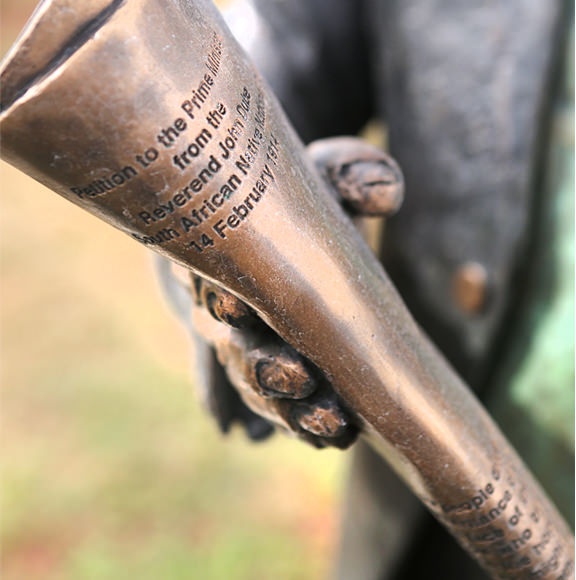
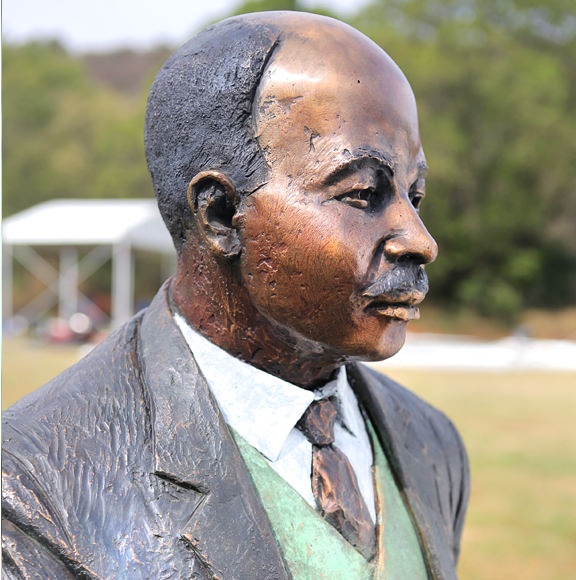
"I do not want to be judged by the heights I have attained, but by the depths from which I have come."
John Dube
John Langalibalele Dube
1871 – 1946
First President General of the South African Native National Congress
John Dube was born one of nine children at the Inanda Mission station of the American Zulu Mission in KwaZulu-Natal in 1871.
His father was a minister at the mission and also a chief of the amaQadi clan. He was named Langalibalele (Bright Sun) after the Hlubi king who had impressed his father with his resilience in his opposition to colonial domination.
He came from a Christian family where the first person to be converted to Christianity in his family was his grandmother Mayembe (baptised Dalida). The church played a large role in grooming John Dube, beginning with Sunday school and continuing through to tertiary level education.
Dube attended the Adams School at Inanda and in the 1880s accompanied the missionary, William Wilcox, to the USA where he earned a teacher's qualification at Oberlin College, Ohio, the first American college to admit all races. He returned to South Africa in 1890 and married Nokutela Mdima in 1894.
The Dubes had ambitions of starting their own mission station that would be independent of American Zulu mission supervision, as was the case at the mission school in Inanda. With the help of the amaQadi Chief Mqhawe, he built two churches and three schools on 200 acres of land in the Inanda district. These schools were the forerunners of the Ohlange Industrial Institution which Dube later established in 1901.
It was the first African-owned school in South Africa, free from missionary or state influence and is still in existence today. Former president Nelson Mandela chose it as the site to cast his vote during South Africa's first democratic elections, symbolically reporting back to the ANCs first president, that 'Today South Africa is free!'
In 1903 Dube achieved another first when he founded the first Zulu newspaper Ilanga LaseNataIi, a voice for African aspirations and grievances. He was politically involved in the South African Native Convention, and in 1912 was elected the first president general of the South African Native National Congress (SANNC), which would become the ANC in 1923.
He led the 1914 SANNC delegation to London to protest the implementation of the 1913 Land Act, which effectively dispossessed the majority of the people from South Africa's land. While in Britain, the First World War broke out and Dube and his colleagues hurried home to mobilise support for the British cause. Deeply religious and forever fighting for the rights of disenfranchised Africans, he lost the presidency in 1917, after it emerged that he was willing to trade African political rights in return for a promise to release more land for African occupation.
Dube led a substantial number of the branches in the province of Natal in secession from the national body, and founded the ANC of Natal in 1930. As a result he was increasingly isolated especially when Champion, Luthuli and others succeeded in reintegrating the provincial ANC back into the mother body during the 1940s. Deeply religious he believed that Christianity was not for taming the African by discarding African culture in favour of western Christianity, but rather a tool to help Africans reach a state of freedom and political independence, both socially and economically.
In 1936 he was the first African awarded an honorary doctorate by the University of South Africa for his contribution to African education. In 2005 the South African government awarded him the Order of Luthuli in Gold for his exceptional leadership and contribution to the struggle for equal rights and a democratic South Africa.
Dube died of a stroke in 1946, two years before the introduction of apartheid.
